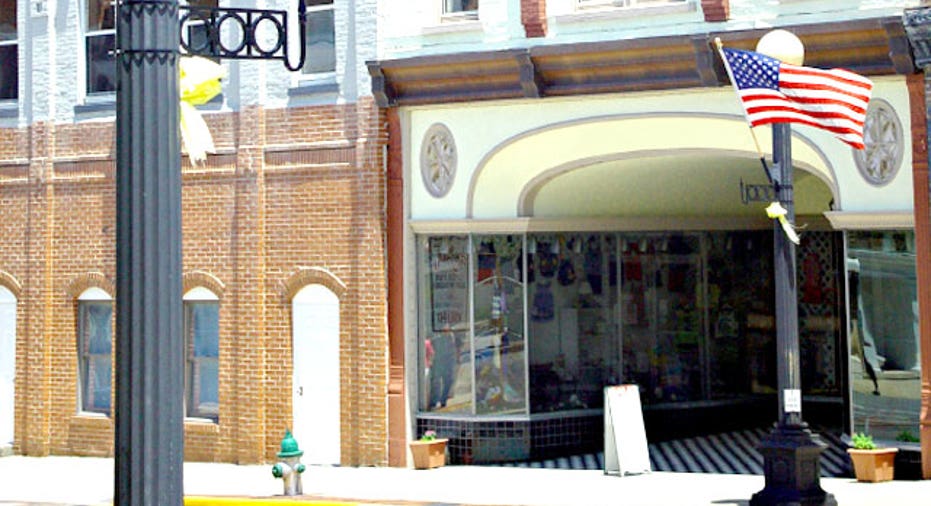Could This Be the Person Who Saves America’s Entrepreneurs?

Entrepreneurism in America is waning. And I’m not the only one who’s saying this. What can reverse the tide?
A recent USA Today report found that startups rose in the second quarter of 2015 - the largest annual gain since 1998, according to Labor Department figures released last month. Could this mean a rise in entrepreneurship in America? It’s encouraging. But I wouldn’t get too excited. Entrepreneurism in America is waning. And I’m not the only one who’s saying this.
A 2014 report from the Brookings Institution found “a marked decline in this country’s entrepreneurship over the past few decades.” The Chairman and CEO of Gallup wrote earlier this year that “…the U.S. now ranks not first, not second, not third, but 12th among developed nations in terms of business startup activity. For the first time in 35 years, American business deaths now outnumber business births.” The National Bureau of Economic research confirmed in 2015 that “…since 2000 the decline in dynamism and entrepreneurship has been accompanied by a decline in high-growth young firms.”
Why this trend? Many point their fingers at our aging population. Or high student debt levels that impede capital formation. Or stagnant income. Others blame government regulations and an uncompetitive tax environment. There’s a lack of cheap capital available. And there’s been a marked rise in huge corporations that eat into Main Street’s independent establishments. Any and all of these explanations are valid. But in an era of historically low start-up costs, inexpensive technology and countless small business resources available from both the public and private sectors, is there something else going on that’s causing the decline of entrepreneurism in America? There is. It’s the lack of people. Not the people who desire risk. But the people who need to take risks.
Last September, the Hartford surveyed more than 2,000 small business owners and found that 73% considered themselves “successful.” However, 79% of them considered themselves to be risk-averse and only a third planned on investing in their company’s growth in 2016. “In our view, nothing dramatic is changing,” Kathy Bromage, The Hartford’s Chief Marketing Officer and Senior Vice President of Strategy, told me. “There are many pressures on today’s entrepreneurs. Even Millennials seem to be more risk averse, saddled with debt, living at home longer and without as many assets as their parents.”
Will new political leadership change this downward trend? If it means lower taxes? Or, fewer regulations? Yes, of course this will help. But not as much as people think.
We’re already successful, according to the Hartford. And yet even with this success we’re reluctant to invest in our growth. That’s because we don’t want to risk what we have. To truly increase entrepreneurism in this country we need someone who doesn’t feel successful. Someone who is more willing to take risks. Someone who doesn’t have what we have but wants it.
Who is that person?
It’s the entrepreneur who needs to startup a business because he (or she) has no other choice. He is the person who doesn’t call himself an entrepreneur. He does not have the “passion” or “desire” or some other romantic notion of changing the world. Instead he makes pizza, sells parts, pumps gas, cleans warehouses or delivers products in order to feed his family. We need someone who is willing to risk more than just his life savings. It must be someone who is willing to invest the most important form of capital any human has: time.
And who is that person?
He comes from a part of the world where there are limited opportunities to create a better life for his children. He comes here to create that life and is willing to sacrifice his precious capital of time in order to achieve that goal. He is not a Stanford-educated-high-tech-math-geek backed by venture capitalists that create billion dollar unicorns out of thin air. He is just a small business owner that provides the products and services that his community needs in return for a chance to create a future. He is the so-called “entrepreneur” that fueled America’s growth in the 20th century. He (or his children) is the person who founded more than 40 percent of the Fortune 500 companies, and is more than twice as likely to start a business as his native-born counterparts (that’s you and me). He is responsible for more than 25% of all new business creation and related job growth.
Higher taxes, more regulations and increasing interest rates aren’t the only things impeding America’s entrepreneurism. It’s the lack of the true entrepreneur that’s hurting us. And that true entrepreneur doesn’t want fame and riches. He wants a livelihood and security for his family. He’s out there and he wants to come here. And to reverse the downward trend in startups, we need to allow him to come.



















